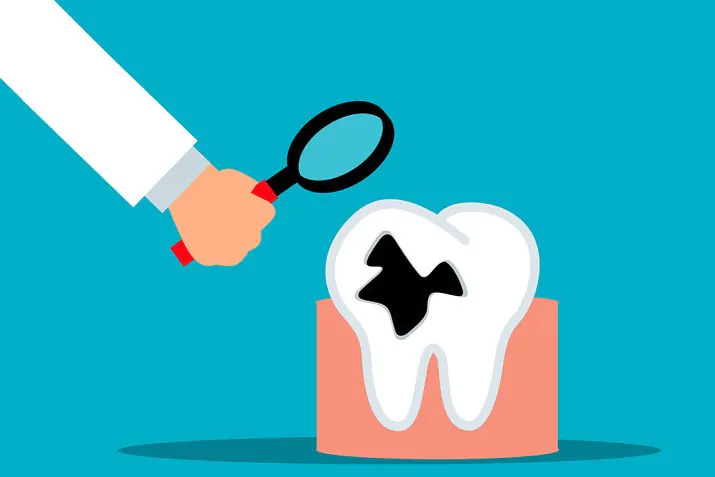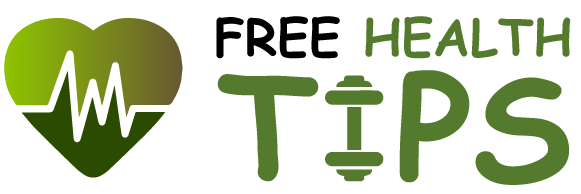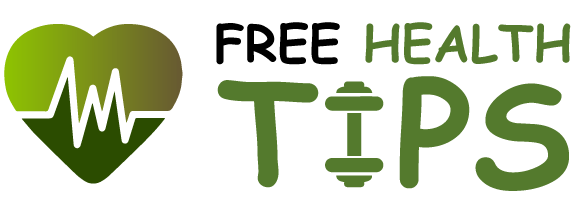Oral health is the basis of the overall health of a person, and we aim to provide all our audience with authentic knowledge that will lead to healthy gums and teeth.
There are multiple illnesses that arise when you don’t brush your teeth or floss your mouth.
There is a saying that states
“You are actually what you eat!”
This is very true and relatable in terms of oral health. As we know the first interaction the food has with our body is with mouth, teeth gums, and whole oral cavity. There are certain bacteria also there to host the food. These include multiple species which cause different levels of arms when provided with suitable environments and conditions.
The daily brushing and flossing we do as part of our routine sometimes aren’t enough to eradicate or remove the bacteria or stuck food particles in our oral cavity. One reason may be the inability of our brush to reach the site. So, to remove the doubt we must visit our dentist annually or every 6 months and undergo a complete examination for early detection of any tooth disease.
How the Teeth Actually Decay
The bacteria require an acidic environment to flourish which is very easily provided by some of our foods. As soon as they find optimal conditions, they start to multiply not just in numbers, but they grow exponentially causing the development of white film on teeth known as plaque.
Further, if the conditions are provided continuously, they lead to damage of enamel and ultimately tooth decay.

The teeth are basically formed from the deposition of various minerals and vitamins, fluoride being one of the main components. The bacterial attack on teeth leads to the loss of minerals and the destruction of teeth. This destruction weakens the tooth structure, hence deteriorating the entire cavity where the tooth is attached to the gum. If fluoride is present, the re-mineralization process occurs and acts as a blessing in disguise. But if it is left untreated the bacteria start to flourish there to leading to serious illnesses. The required daily allowance for fluoride by ADA is 1000 to 1500 ppm for children and adults respectively.
Benefits
There are several benefits you get when you regularly brush your teeth and ensure oral health.
Reduce the chance of deadly strokes
There is proven evidence that gum disease and heart disease are linked as they share a common origin and root cause. So, to prevent diseases like stroke and coronary artery disease, you need to brush your teeth regularly and ensure proper oral health.
Freshen your breath
You know wats most embarrassing! To smell bad of course.
Good oral hygiene maintained by regular brushing, flossing, and use of mouth fresheners is the best way to prevent persistent bad breath.
Brighten your smile
The brightest smile in the room will surely catch the attention of many. This can be ensured by dental cleaning.
Drinking coffee, tea, and wine or using tobacco can stain your teeth leaving a bad impression so try to avoid the excessive use of these foods.
Prevent tooth loss
Gum disease is thought to progress into tooth loss. To avoid this condition, dental cleaning is necessary along with appropriate foods for optimal oral health.
Prevent cavities
The development of a whitish film on your teeth is called plaque and is the leading cause of tooth decay. This acidic substance ultimately eats away at the tooth enamel and, if left unattended, can lead to cavities.
Nutrition and Dental Health
Nutrition basically plays a major role in teeth health and its development in the first place.
The development of teeth starts in the second or third month of gestation, if the mother takes adequate nutrition and minerals especially, then this will lead to healthier teeth in the baby. Insufficient nutrition supply during this period affects tooth development.
Diet and nutrition therapy is important in all phases of tooth development, eruption, and maintenance. The diet after the eruption of the teeth Is equally important in the maintenance and development of teeth. Other significant effects of adequate nutrition include eruption patterns of the remaining teeth and enamel development. The amount, type, and frequency of carbohydrates directly affect the production of organic acids by the bacteria present in the oral cavity and the rate of tooth decay.
Oral Health Disorders and Their Mnt
The oral health term is quite vast covering many other aspects apart from dental caries. There are multiple disorders that arise due to the poor oral health.
- Deficiencies
Several deficiencies including vitamin D and B complex and some minerals can be detected easily by examining the oral cavity and symptoms can clearly be seen. These include zinc and iron deficiency disorders. So a diet rich in these minerals must be given to the patient to prevent further abnormalities.
- Periodontal disease
Periodontal disease is a disease that is systemic in nature. Vitamins A, C, E; B9; plant compounds like beta-carotene; and the minerals calcium, phosphorus, and zinc play a major role in the prevention and management of the disease.
- Oral cancer
Oral cancer resulting from tobacco and alcohol abuse affects the nutritional status and eating habits. This problem can be addressed by increasing the daily caloric intake of the patient and increasing the foods that provide symptomatic relief to the sufferer.
- Radiation therapy
In addition to this, dietary intake, the integrity of the oral cavity, and appetite is affected by the surgeries and radiation therapies that are undertaken to treat the cancers. Over-the-counter natural products are there to prevent or cure such medical conditions that may help soothe your oral cavity.
Foods to Eat and Avoid for Good Oral Health
The food we eat has a direct link with diseases of the mouth and teeth. The food contains various kinds of nutrients that affect the teeth’ condition in many ways. The foods that benefit the most are fiber-rich foods, calcium-fortified foods along with vegetables containing high water content. This is due to the fact they provide added benefits of cleaning the mouth while being chewed apart from the nutrition they provide.
DO’s
1. Water, milk, yogurt, and cheese will benefit you in several ways to promote good oral health. They will maintain the pH of the mouth thus balancing the acidic environment.
2. Green and black teas contain high antioxidant content having the radical scavenging ability that helps encounter the cancerous and poisonous particles that enter your mouth with food or develop into one by staying in your mouth for longer periods.
3. Crunchy or water-containing vegetables like carrots, celery, or dark leafy green vegetables also help you to fight bacteria and cavities by producing saliva that will help floss your mouth.
4. Certain fruits like apples, pears, berries, pomegranates, and apricots containing high polyphenols and flavonoids help your oral cavity in certain ways. They also balance the acidic environment by counteracting the malic and citric acid of food.
5. Nuts and seeds contain good amounts of calcium and certain vitamins that help in tooth development and healthy gums.
DONT’s
- Sugary beverages containing high sugar content
- Candies, cakes, and bakery items that stick to your mouth
- Carbonated drinks will demineralize your teeth leading to fluoride and calcium loss
- Starchy foods like fried potatoes and too much bread
- Some medicines
Childhood Caries
Tooth decay is most common at an early age and termed Early childhood caries (ECC), often called “baby bottle tooth decay,” which describes a caries pattern in the teeth of infants and young children.
Characteristics include rapidly developing carious lesions in the primary anterior teeth and the presence of lesions on tooth surfaces not usually associated with a high caries risk.
Oral health is the primary marker of a child’s oral health because tooth decay remains a common oral disease in childhood. Good behavioral habits and child nutrition patterns must be encouraged, beginning in infancy.
Nutrition Care
Messages are targeted to counter the poor health habits that lead to this problem including poor oral hygiene, frequent use of bottles filled with sweetened beverages, failure to brush a child’s teeth daily, and lack of administration of fluoridated water.
Dietary guidelines include.
- Remove the bedtime bottle of the child
- Adjust the frequency of milk given to the toddler
- Monitor the content of the daytime bottle that you feed the infant with
- Water, formula, or milk should be administered only
- Toddlers and infants must not be given a bottle at bedtime
- Teeth and gums must be cleaned after feeding with the washcloth.
- Educational efforts should be positive and simple, focusing on oral hygiene habits and the promotion of a balanced, healthy diet
- The snacks between the meals must include food that is cariostatic.
- Tooth brushing or rinsing the mouth must be ensured when the foods given are cariogenic
- Parents and caregivers need to understand the causes and consequences of ECC and how they can be avoided
Supplementation
Fluoride is the main supplement for good oral health. It can be administered in the form of fluorinated water or drinks. Fluoride can be used topically and systemically. When consumed as food and drink, it readily enters the systemic circulation and gets deposited in bones and teeth.
The primary source is fluoridated water; food and beverages supply a smaller amount of fluoride and do not prove to be effective. Fluoride supplements are not safe for infants fed on formula milk and thus are not recommended.
Fluoride supplements are not provided as over-the-counter medicines and must be prescribed by the child’s healthcare provider supplements (ADA, 2014). Topical fluoride sources are rinses, gels, and toothpaste along with more concentrated forms applied by dental professionals in the form of gels, foams, and rinses.
Oral Infections and Their Dietary Management
Infection Type
- Candidiasis
- Herpes
- Stomatitis
Problems
Common problems that may arise due to infection in teeth are as follows:
- Altered ability to eat, lesions, infection, and pain
- There may be Increased caries risk, lack of saliva to form a bolus, pain, difficulty with mastication, and the tendency of food to stick
- Xerostomia
Dietary Management
- You need to increase kilocalorie and protein intake in the first place
- Administer oral supplements to enhance the oral health
- There is a dire need to provide caries risk reduction education
- Moist, soft, non-spicy foods must be encouraged
- Smooth cool or warm foods and fluids such as unsweetened beverages, soups,
Natural Products for Healthier Teeth:
Several natural and nutritional products can be used to rinse your mouth or apply topically for the best oral health, fresh breath, and the brightest smile. They include the following
- Coenzyme Q10
- Chamomile
- Glutamine
- Iodine
- Fluoride
- Xylitol
- Pomegranate extract for dental protection


